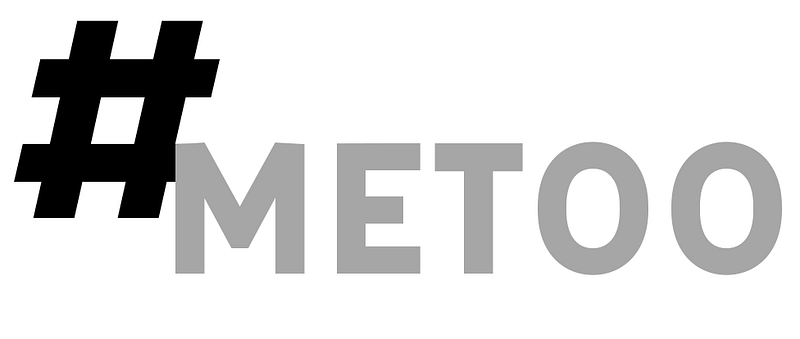Get Uncomfortable
As feminist movements grip social media, it’s important to ensure the purpose remains accessible and inclusive to all women.
Personal Essay by NATALIE BREYMEYER

Trigger warning: this article contains references of sexual assault.
They kept appearing, flooding my social media timelines and becoming impossible to ignore. You probably saw them too or even participated. They were statuses branding the hashtag #MeToo that saturated news feeds in fall of 2017, driven by a throng of Hollywood celebrities.
I sought comfort in this hashtag that thrived on repudiating the shame typically associated with acts of sexual assault, misconduct and harassment. As a victim of sexual assault, I originally had no qualms with it.
That was the problem– I felt wholly represented as a straight, white, cis-gendered female. But what about the myriad of other identities that comprise this construct of womanhood?
#MeToo was created more than 10 years ago by activist Tarana Burke, a black woman. Following its eruption on social media, the campaign’s initial purpose of reminding young girls of color they are not alone in their experiences has been obscured.
As the shortcomings of the movement grew clear, I realized this seemingly immaculate hashtag could produce consequences that unraveled the progress simultaneously being made. I assessed my privilege and recognized that my experience will never, and should never, represent all women.
I’m writing this as reminder that you too, should take a moment and gauge your privilege. It shouldn’t take too long. And once you’ve done that, question everything. This will probably take your whole life.
Examining your privilege is a constant, said Evelyn Hobbs, coordinator of the Associated Students Queer Resource Center.
“It hurts. People like the idea of being self-sufficient and so realizing half the things you accomplished were the result of the world being set up in your favor doesn’t feel good,” Hobbs said. “Recognize what you benefit from and always be learning. If you’re not, you should be.”
While it’s important to be mindful of privilege, your disadvantages become relevant as well. Hobbs uses the term “oppression olympics” to describe the notion of competing with others for who has it worse.
The movement should be grounding, not alienating. It’s a perpetual effort of ensuring we are not all reduced to a single experience but embracing the differences.
“I’m trans, so I have my own set of issues with that. It’s affected me my entire life,” Hobbs said. “But I also grew up in a white neighborhood and went to school with teachers who looked like me– you know, those things that are so important for development. I know my experience doesn’t represent all trans people though, and my own experiences probably affected me completely differently than those of a woman of color.”
The more I looked into #MeToo and the general trend of exposing perpetrators of sexual assault, misconduct and harassment, I realized how catered this movement was to only a certain fraction of women– women like me.
When popular celebrities call out an abuser, they have a sense of security, given their prominence and salaries. When a woman working a low-wage job calls out someone in power taking advantage of her, she may run the risk of losing her sole source of income.
In 2016, two in five women were subject to sexual harassment on the job in the fast food industry, according to a survey by Hart Research.
When a white woman calls out an abuser and law enforcement get involved, she probably won’t feel the same toward police as a woman of color who has experienced institutional racism her entire life.
Often times, women with disabilities are targeted because they have trouble rejecting advances and later testifying in court. According to a study by Disability Justice, 83 percent of women with disabilities will be sexually assaulted in their life, and only 3 percent of sexual abuse cases involving people with developmental disabilities are ever reported.
Where is their representation?
The rhetoric used within the #MeToo movement has put a hyper-focus on sexuality, especially relationships between a man and a woman. But what about queer or non-gender conforming individuals who do not fit the mold of this binary narrative being framed as the norm?
These contradictions do not by any means deny the experiences of straight, white women or dismiss the courage of celebrities who reignited the movement in recent months. However, be apt in pinpointing the weak points. Educate yourself, recognize it and work to end it, said Hobbs.
“No one’s experiences are wrong,” she said. “But step back. People will most likely listen to you, but who’s listening to them? It’s okay to just shut up and listen sometimes.”
This is where the movement heralds criticism– the platitude of how something that boasts inclusivity tells white women they can’t have a voice. I look at it this way: it’s not taking away my voice but reminding me to make room for the women who haven’t had a turn to speak.
Why should only a select group of women be able to partake in the #MeToo phenomenon? What wrong could come from making an effort to allow other women representation within a movement in which their inclusion should already be assumed?
“You can’t reduce the movement by increasing the number of people who it works for,” Hobbs said. “That’s just logic.”
When feminism is intended to embolden all women, we can’t let race, class, sexuality and the countless other attributes be stripped away. There is not one “regular” experience, but rather a multitude of intersecting qualities that form this movement.
And it’s messy.
Something that is supposed to encompass half of the population will probably never be a clean, compact thing. Be okay with being unimportant. Feel uncomfortable. Allowing other women to be heard may come at the expense of your own voice.
